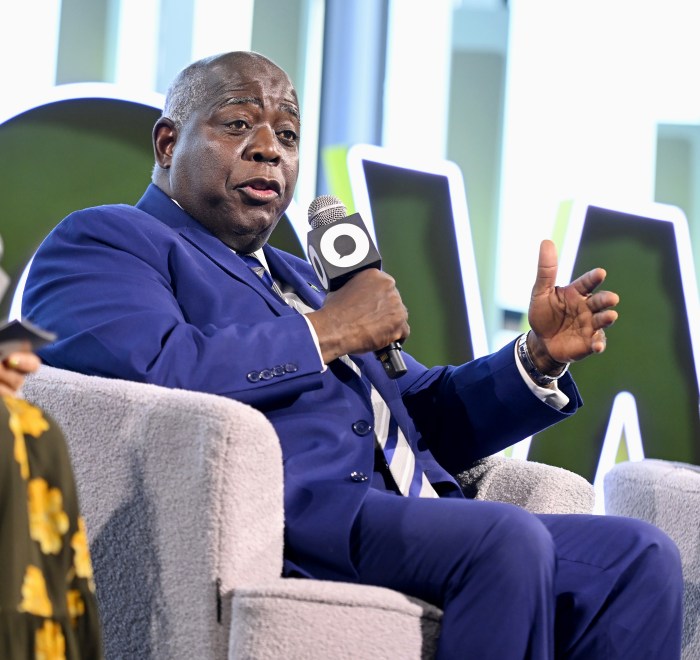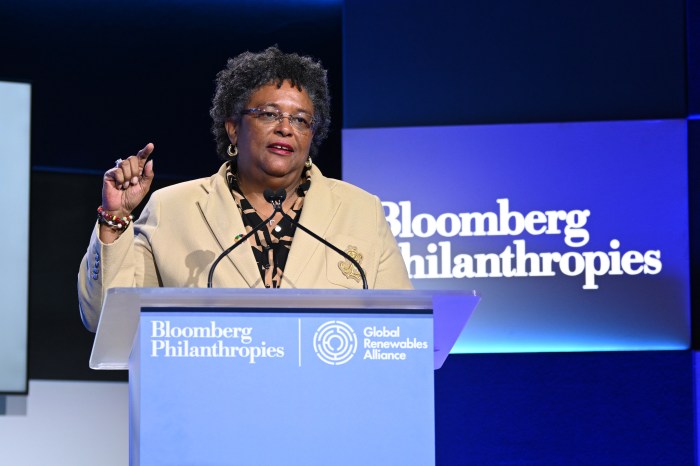BAHAMAS
The Rastafarian community in the Bahamas has defended the use of natural remedies in the fight against COVID-19, by stating that none of its members has contracted the virus.
The claim was recently made by High Priest Rithmond McKinney who declared that no Rastafarian will take the COVID-19 vaccine as they believe being injected with “any foreign substance” is against their religious beliefs.
In a statement, McKinney said that the Rastafarian community see vaccines as being detrimental to the “holistic development of our children.”
“Rastafarians believe that the dangers of vaccines outweigh the benefits and are strongly opposed to any policy that demands immunization as a condition for education and/or work.”
McKinney said medical officials need to tell Bahamians how they could help themselves.
He said the Rastafarian community totally believes in bush medicine.
“We continue drinking our bush medicine along with cannabis as part of our regime to prevent COVID-19,” he added.
BARBADOS
The Barbados government says it has not yet made a policy decision as it relates to making COVID-19 vaccinations mandatory for citizens, underscoring the importance of consultation as the island seeks to curb the spread of the COVID-19 pandemic that has killed 48 and infected 4,485 since March last year.
Acting Attorney General Wilfred Abrahams, addressing the first of a series of town hall meetings sought to dispel misconceptions that the Mottley government is trying to impose the vaccine on residents, said people were speaking about “forced vaccination,” stressing that “nothing could be further from the truth.”
He acknowledged that Barbados needed to develop policies that would ensure the continued development of its economy and the safety of its citizens, including their way of life and their rights.
Abrahams said while there may be varying views on the subject matter, the town hall meetings were being held to hear suggestions from the public.
Acting Prime Minister Santia Bradshaw said it was important for the consultations noting that officials were aware that many people had given thought to COVID-19 and its impact and might have alternative ideas on how the issue of vaccination and vaccinating others to get the economy moving again.
CARIBBEAN
The United States last week announced that it will be shipping more than 200,000 doses of the Pfizer vaccine to Jamaica and St. Lucia as part of its global efforts to save lives as a result of the COVID-19 pandemic.
Washington said it is shipping this week 208,160 doses of the Pfizer to Jamaica and 62,650 doses of Pfizer to St. Lucia, as the US maintains its commitment to playing a role in ending the pandemic everywhere.
Authorities from both countries have worked together to ensure the prompt delivery and safe effective vaccine shots to Jamaica and St. Lucia.
Recently Washington sent nearly one million vaccines to several Caribbean countries, including Antigua and Barbuda, Barbados, Trinidad and Tobago, The Bahamas, St. Vincent and the Grenadines and St. Kitts and Nevis.
GRENADA
Hundreds of revellers took to the streets recently in defiance of a ban on carnival activities for the second consecutive year as a result of the COVID-19 pandemic in Grenada.
Parliament had earlier this year approved of a government motion cancelling the annual traditional celebrations over the past two days earlier this month but that did not prevent hundreds of people from various communities engaging in the “jab jab” J’ouvert celebrations.
Police have not yet identified whether or not any person had been arrested or charged as a result of the breach.
Officials of the Ministry of National Security said there were small pockets of revellers in several communities, including St. Mark and St. Paul, with the largest gathering taking place in St. Andrew, which occupies most of the eastern part of the island.
The revellers beating drums and buckets, blowing whistles, horns and other instruments, paraded under the banner “More Jab Freedom” chanting their objection to the cancellation of carnival as a result of the pandemic.
Grenada has so far recorded 178 positive cases and one death linked to the pandemic.
HAITI
The “very competent” judge appointed to lead the investigation into the assassination of President Jovenel Moise, who was gunned down at his private residence on July 7, has stepped down less than a week on the job.
In his letter to the Dean of the Court of First Instance in Port-au-Prince, Bernard Saint Vil, Justice Mathieu Chanlatte has cited “personal convenience” for his decision after indicating the regulations provided for the “examining magistrate may withdraw from knowledge of the case at any stage of the proceedings.”
The letter gave no other reasons for his decision, but Saint Vil had in the past few days found it difficult to appoint a judge to examine the file and documents related to the killing of Moise, because they feared for their lives.
Media reports said it seems the lack of security for him and his family was the main reason that led Chanlatte to make his decision.
Death threats are especially common in high profile slayings in Haiti.
Police said they have arrested 44 people, including 12 Haitian police officers and 18 Colombians who were allegedly part of the commando team and two Americans of Haitian descent.
ST. LUCIA
St. Lucia has become the latest Caribbean country to confirm the presence of the Delta variant of the coronavirus (COVID-19).
Chief Medical Officer, Dr. Sharon Belmar-George told a news conference that the island has now recorded three cases of the virus, joining Trinidad and Tobago and Grenada in registering the presence of the deadly virus within a 72-hour period.
She told reporters that the three cases were among six new cases of variants concern, the other being the Alpha variant, which has been detected from the last batch of results of tests received from the Trinidad-based Caribbean Public Health Agency (CARPHA).
The chief medical officer said that fully vaccinated people can still contract the virus, which has killed 95 people and infected 6,112 others since the first case was detected in March last year.
ST. KITTS
The St. Kitts and Nevis government has banned cruise ships into the twin-island Federation until vaccination and testing can be identified.
Minister of Tourism, Transport and Ports, Lindsay Grant said in May, the Centers for Disease Control and Prevention (CDC) no sail order placed a halt on cruising from the United States and cruise lines in their best interest decided to resume cruising from the Caribbean and Caribbean home ports.
He said because Florida currently allows vaccinated and unvaccinated passengers to cruise and the twin-island Federation has not yet achieved herd community, he will not allow the country’s health sector to be jeopardized.
The tourism minister added that the government of St. Kitts and Nevis is trying to find a delicate balance between the economy and the health of the country.
For August, therefore, no calls of the Allure and Symphony of the Seas have been allowed.
TRINIDAD
The Trinidad and Tobago government has extended the state of emergency (SoE) for another three months to Nov. 21.
Parliament met in emergency session on Wednesday to approve the motion by PM Dr. Keith Rowley.
The SoE and curfew were part of measures the government put in place to curb the spread of COVID-19 pandemic.
On May 15, President Paula May-Weeks declared that a state of emergency exists in Trinidad and Tobago.
On May 24, a motion was brought to the Parliament to extend the SoE for three months. It was passed with a simple majority vote in the House of Representatives.
The first three months extension expires on midnight Aug. 29.
After this second extension, which will be a total of six months, if the government sees the need for a further extension, then it will require the support of the Opposition and the Independent benches as a three-fifths majority of both the House of Representatives and the Senate are necessary.
One of the key aspects of the SoE is the imposition of a curfew.
For the past few months Trinidad and Tobago has been under a 9 am to 5 am curfew.
— Compiled by Azad Ali






















